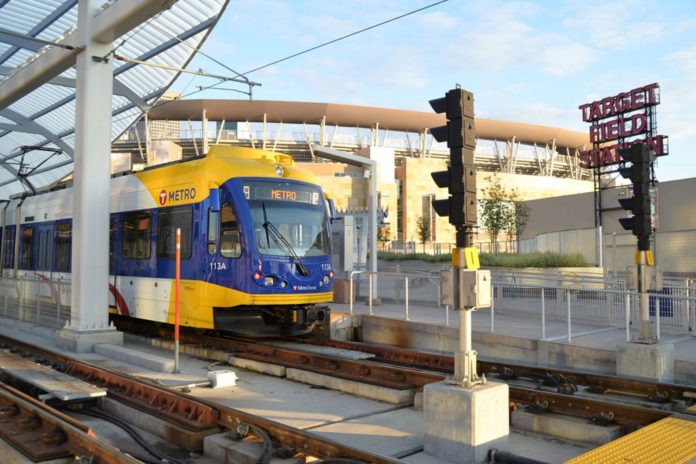The Metro Transit Police Department (MTPD) is struggling with low levels of morale, staffing, and job satisfaction.
A survey of Metro Transit officers was conducted from Oct. 13 to 20 and yielded 118 responses. Roughly 70% of the respondents were sworn full-time officers.
The results were not encouraging, especially compared to pre-COVID results from Jan. 2020. Job satisfaction has fallen below 50%, the number of officers who have considered changing careers has risen above 50%, and an increasing majority of officers find staffing levels inadequate.
In Jan. 2020, 68% of Metro Transit officers were somewhat to very likely to recommend the department as a “great place to work.” Now, in Oct. 2021, that percentage is down to 43%.
Roughly one in five officers is “very unlikely” to recommend the MTPD to others — a significant increase from Jan. 2020. Officers are twice as likely to adamantly refuse to recommend the job than to eagerly recommend it.
Survey results also showed that 58% have considered changing careers at some point within the past few years, up from 42% in 2020. The biggest increase came among officers who have “strongly” considered a career change.
“Those that remain want change to prevent others from leaving,” according to a Metro Transit presentation of the results. “[And there is] concern that issues causing people to leave are not understood by leadership.”
As for the assertion that work units have sufficient staff to complete their tasks, the survey noted a near doubling of officers who responded “strongly disagree.” Staffing has long been a concern; only 23% of officers in Jan. 2020 said staffing was adequate. But that number is down to 12% in Oct. 2021.
Other data points showed a perceived lack of support from Metro Transit leadership and the Twin Cities community.
Only 10% of officers think that courts and related agencies provide appropriate follow-up after MTPD arrests and citations. Another 10% feel supported by Metropolitan Council members, 16% by Metro Transit leadership, and 21% by the communities they serve.
In April, Alpha News reported that Metro Transit officers also feel they can’t fight crime on light rails because their “hands are tied” by Met Council management and the Amalgamated Transit Union (ATU).
“If any bus driver or train operator feels disrespected or scared in any way, their union comes hard at Metro Transit,” a source said. “That forces them to tell the police department, ‘You’re no longer doing patrol. You’re going to sit at these terminals and just stand there and wait and wait and clear trains.'”
One silver lining from the survey results, however, is that Metro Transit officers generally take pride in their department and their line of work. As the presentation put it, they just wish they could have more to be proud of.
















